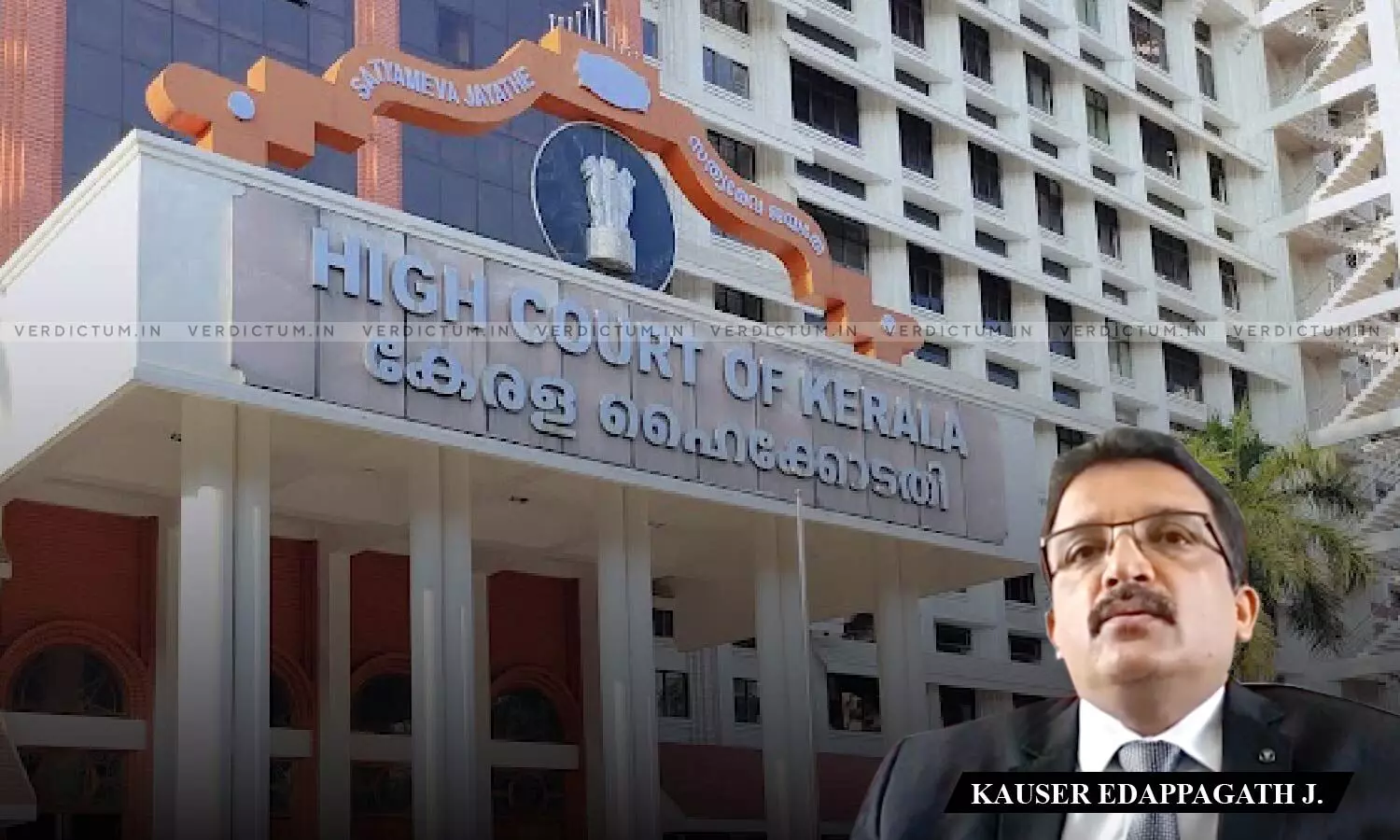
Justice Kauser Edappagath, Kerala High Court
Order Refusing To Grant Consent For Withdrawal From Prosecution U/S.360 Of BNSS Can Be Challenged By Accused In Revision : Kerala High Court
 |
|The Kerala High Court was considering the Revision Petitions filed in two criminal cases where the applications seeking withdrawal from prosecution were dismissed.
The Kerala High Court has ruled that if the order refusing to grant consent for withdrawal from prosecution under Section 360 of BNSS (Section 321 of Cr.P.C) is vitiated by non-application of mind to the relevant materials, or is demonstrably illegal, arbitrary, or perverse resulting in miscarriage of justice, the accused being the person aggrieved has every right to challenge the same in revision, even if the State has not chosen to challenge the same.
The High Court was considering the Revision Petitions filed in two criminal cases where the applications seeking withdrawal from prosecution were dismissed by the Additional Assistant Sessions Judge.
The Single Bench of Justice Kauser Edappagath said, “As such, if the order passed under Section 360 of BNSS (Section 321 of Cr. P.C.) is vitiated by nonapplication of mind as aforesaid, the accused has every right to bring it to the notice of the High Court by way of a revision.”
“Thus, if the order refusing to grant consent for withdrawal from prosecution under Section 360 of BNSS (Section 321 of Cr.P.C) is vitiated by non-application of mind to the relevant materials, or is demonstrably illegal, arbitrary, or perverse resulting in miscarriage of justice, the accused being the person aggrieved has every right to challenge the same in revision, even if the State has not chosen to challenge the same. However, the accused cannot challenge the order purely on merits, seeking reappreciation of evidence”, it further observed.
Advocate Millu Dandapani represented the Petitioners while Senior Public Prosecutor E.C.Bineesh represented the Respondents.
Factual Background
The High Court was dealing with two matters. In the first case, the petitioners accused were booked under Sections 143, 147, 148, 452, 427, 332, and 152 read with Section 149 of IPC, Sections 3 and 5 of the Explosive Substances Act, Section 25(1A) of Arms Act, Sections 3(1) read with 7 of PDPP Act and Section 38 read with Section 52 of Kerala Police Act. The petitioners appeared before the trial court and were released on bail. Thereafter, the Public Prosecutor filed an application seeking withdrawal from prosecution but the same was dismissed vide the impugned order. In the other case, the petitioner was accused of committing an offence under Sections 466 and 468 of the IPC. The application seeking withdrawal from prosecution was also dismissed by the Magistrate.
Arguments
It was the case of the petitioners that the accused, being the real affected party of the order dismissing the application for withdrawal from prosecution, is entitled to maintain a revision petition, even though the State has not challenged the said order.
The Public Prosecutor, on the contrary, submitted that the right to apply for withdrawal from prosecution under Section 360 of BNSS (Section 321 of Cr.P.C) is vested with the Prosecutor only and the accused has absolutely no say in it and hence, when the State/Prosecutor has not chosen to file a revision challenging the order of dismissal of the petition for withdrawal from prosecution, the revision at the instance of the accused is not maintainable.
Reasoning
The Bench explained that the withdrawal of prosecution is an executive function. Section 321 of Cr.P.C (Section 360 of BNSS) provides for premature termination of criminal proceedings at the instance of the Public Prosecutor or Assistant Public Prosecutor, as the case may be. “The statutory responsibility to decide upon withdrawal rests with the Public Prosecutor and no one else. Neither the accused nor the victim has a say in it. The provision of Section 321 of Cr.P.C, which gives the Public Prosecutor the power of withdrawal of any case at any stage before judgment is pronounced”, it said.
“The provision contemplates consent by the court in a supervisory, and not in an adjudicatory manner. The Court's duty in dealing with the application under Section 321 of Cr.P.C. (Section 360 of BNSS) is not to reappreciate the grounds which led the public prosecutor to request withdrawal from the prosecution, but to consider whether the Public Prosecutor applied his mind as a free agent uninfluenced by irrelevant and extraneous or oblique considerations”, the Bench added.
The Bench held that if the order passed under Section 360 of BNSS (Section 321 of Cr. P.C.) is vitiated by nonapplication of mind as aforesaid, the accused has every right to bring it to the notice of the High Court by way of a revision. As per the Bench, though the main object of Section 360 of BNSS (Section 321 of Cr.P.C) is to withdraw a criminal case on the grounds of larger grounds of public policy, it would also protect the accused from unnecessary and vexatious prosecution.
On a perusal of the impugned orders, the Bench noted that they were not speaking orders. No reasons had been stated in the impugned orders for not allowing the applications filed by the Prosecutor for withdrawal from prosecution. There was no discussion about the various grounds canvassed by the Prosecutor justifying the prayer for withdrawal or materials furnished before the Court.
Thus, setting aside the impugned orders, the Bench directed the trial courts to reconsider the respective applications for withdrawal from prosecution and dispose of the same within two months.
Cause Title: George Alexander @ Prince v. State Of Kerala (Neutral Citation: 2025:KER:43501)
Appearance
Petitioner: Advocate Millu Dandapani
Respondent: Senior Public Prosecutor E.C. Bineesh